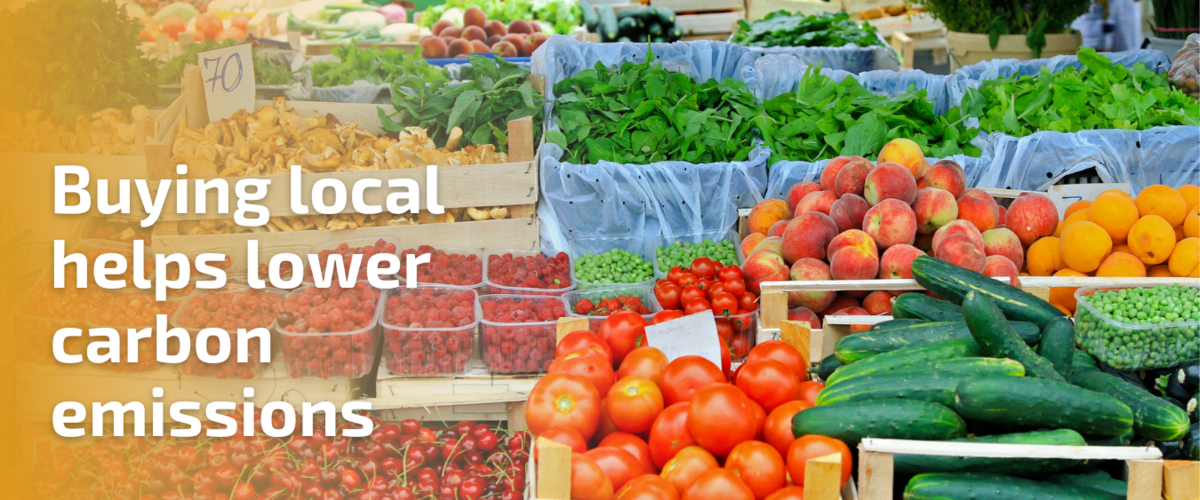In this article, we cover seven ways businesses are trying to fit the mold in becoming a more sustainable kitchen.
1. Cutting down on plastic and packaging waste
One of the most significant sources of waste within the food service industry is non-recyclable packaging and kitchen utensils. The elimination of single-use plastics and unnecessary packaging has helped restaurants all over the world reduce their overall waste output. Substituting plastic cups and silverware for reusable ones, as well as cutting down on grocery bags, specialty produce bags and many pre-packaged goods in supermarkets has helped the cause. Decreasing your reliance on these materials is not only an eco-friendly practice, but it will also help you stay ahead of the curve regarding regulations and ordinances in your restaurant’s city and state.
By end of 2021, Canada will ban a number of single use plastivs, which is forcing restaurants to adapt. Should these regulations continue to expand and your restaurant is already doing its part to reduce beyond government regulations, you will be better prepated than the competition.

2. Predetermined place for excess food
Whether you operate a restaurant, food court or large processing facility, you are going to have some excess food. It’s a natural byproduct of your daily operations. Having a predetermined place to send your excess food, one where it will have a purpose, prevents it from being waste in the first place.
Food banks and food donation apps are making it easier than ever before to pass off your excess food to a place that will give it a renewed purpose, and restaurants are taking advantage. Some food banks will pick it up from your kitchen free of charge and various apps have helped make the connection process between businesses with excess food and food banks quicker and more efficient.
The best way to manage a surplus of food in your business is to donate it. It helps your kitchen reduce its waste output while simultaneously helping those in your community who need it.

3. More efficient inventory ordering practices
With the help of technological advancements, restaurants and other food retailers have gotten savvier than ever when it comes to managing inventory and the shelf life of ingredients needed to create their finished product. Just-in-time inventory and other ordering and delivery methods have helped eco-friendly restaurants reduce the amount of ingredients that go unused beyond its shelf life. Being efficient with inventory greatly helps reduce food waste and is an important eco-friendly practice.
Where just-in-time inventory has become difficult in todays climate with increase supply chain issues, shelf-life extenders are another technological advancement that have helped businesses better use and manage their inventory. While there are many types of extenders that have been created over the last decade or so, these are essentially ingredients added to food products after they have been processed that help reduce the microbial growth that leads to products going bad and no longer being able to be used.
More effectively managing inventory has been a positive theme within the food service industry as retailers do their best to mitigate ingredients and supplies that become waste without ever being used.

4. Energy saving appliances
Commercial kitchens require a lot of energy consumption to complete their daily operations. Using energy saving appliances is a great way to lower your utilities bill while also becoming more environmentally friendly. LED lights and motion sensor lighting where appropriate is something restaurants have used to conserve energy, as well as spot air conditioners. The less equipment a kitchen has powered and running while not being actively used, the more energy efficient it is.
5. Ordering local
Similar to being more efficient in how businesses order ingredients, a trend has emerged in who they are ordering from. Retailers are making a more consistent effort to order from local farmers and food producers. Ordering local means fresher food and a healthier environment. Fewer preservatives are needed to transport the food and fewer carbon emissions are released to the environment when your order doesn’t have to come via a truck travelling hundreds of miles to get it to you. This also helps local economies by supporting local farmers and smaller producers.
Sometimes, a shift toward ordering local can also help spark inspiration for a seasonal menu, which is another eco-friendly practice that keeps kitchens stocked with locally grown ingredients that are currently in-season, which will help reduce overall food waste.

6. Proper waste management and recycling
Much like excess food, the waste cooking oil restaurants and other commercial kitchens use to fry that food has to go somewhere. Partnering with a reputable collection service is the best way to go as it prevents the used cooking oil from ending up in a landfill.
Some collection services repurpose it into renewable diesel, a cleaner burning alternative to petroleum fuel that reduces carbon emissions by up to 85 percent per gallon. Restaurants that utilize such a service can also market it as them doing their part to contribute to a greener future.

7. Eco-friendly cleaning products
More businesses are pivoting to cleaning products that contain fewer chemicals and are better for the environment. Many cleaners are chock full of chemicals that have an adverse effect on the environment. This sustainability movement has driven the creation of chemical-free cleaning products that are more readily available than ever. Steam cleaning your floors and other applicable areas of your restaurant and using products that do not contain these harmful chemicals is something that restaurants and other businesses within the food service industry has shifted to as the sustainability movement among consumers has become more prevalent.
Businesses adapt to the desires of their consumers and as the world has become more environmentally friendly, the increased desire to buy from retailers that utilize eco-friendly practices an array of trends within the food service industry, and these are just a few of them.
Darling helps restaurants and commercial kitchens across the country become more eco-friendly through our comprehensive used cooking oil recycling program. Reach out to a Darling representative today to learn how your business can benefit from our services. Call us (800) 263-0302.
Contact Sales
For customer service inquiries call our toll free number (800) 263-0302
By submitting this form I agree to the privacy policy including the usage of contact details to contact me for marketing purposes.
